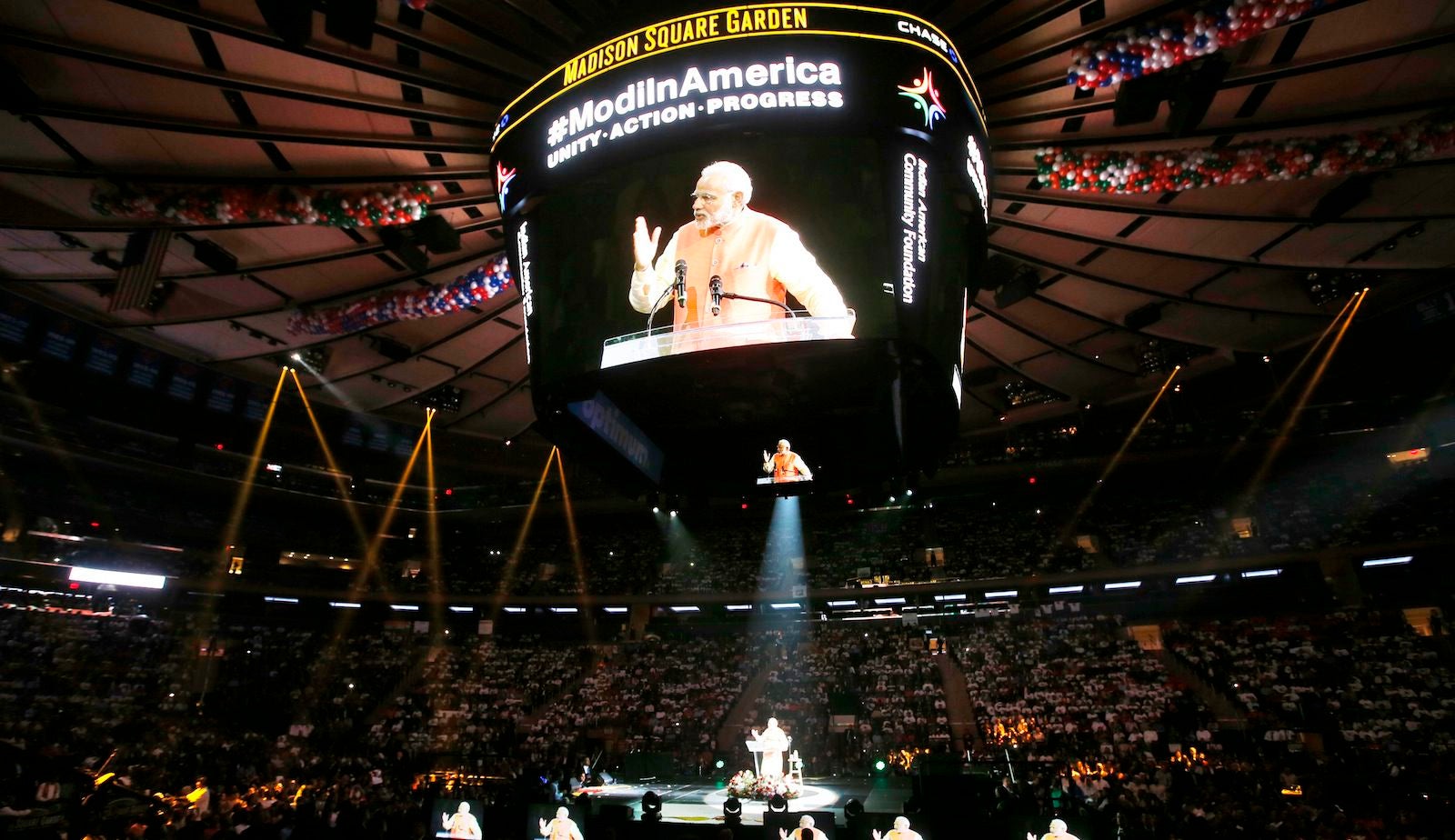Modi’s show of strength in New York will shape how he is treated by Washington
The Indian Diaspora’s support for India is not automatic. They can be the severest critics of India on occasion, but they rarely hold back their support and solidarity when India does something right. So, the unprecedented rock-star reception accorded to Narendra Modi at Madison Square Garden (MSG) reflects the Indian American community’s genuine admiration and the expectation that he will transform India.


The Indian Diaspora’s support for India is not automatic. They can be the severest critics of India on occasion, but they rarely hold back their support and solidarity when India does something right. So, the unprecedented rock-star reception accorded to Narendra Modi at Madison Square Garden (MSG) reflects the Indian American community’s genuine admiration and the expectation that he will transform India.
In the United States, the richest 1% of the population is believed to be decisive to the nation’s fortunes. Likewise, the 1% of the Indian American population—prosperous, with representation in critical sectors of the economy—has considerable influence. That explains why several senators and congressmen, including the chairman of the Senate Foreign Relations Committee and the equivalent body in the House and a governor were at hand to greet Modi.
The Indian community finances their election campaigns, provides them with professional services and keeps them informed of the good and bad news from India. The India Caucus in the Congress and the Friends of India in the Senate are the offshoots of the growing clout of the Indian Americans in US politics.
President Barack Obama cannot but take into account the tremendous enthusiasm of the significant 1% of his people for the new leader of the largest democracy when he sits across the table with Modi at the White House. The very purpose of the MSG extravaganza was exactly that.
Of course, Obama had anticipated the phenomenon when he appointed Nisha Biswal (assistant secretary of state for south and central asian affairs), Arun Kumar (assistant secretary for global markets, US department of commerce) and now Richard Verma (US Ambassador to India) to take care of crucial positions in the US administration.
The MSG event was more important for its symbolism and implications for the future, than for what was said or done there. But Modi could be trusted to say the right things at the right time. He harped basically on three themes—how the overseas Indians, particularly Indian Americans, have raised India’s standing and prestige abroad; the greatness of India, old and new; and his personal promise to meet the expectations by sheer dint of hard work.
As expected, Modi spoke eloquently about ‘Mangalayan’, the successful Mars mission. In Gujarat, an auto rikshaw ride costs Rs 10 per kilometer, but the journey to the Mars cost only Rs 7 per kilometer, he said, making an argument against the charge of extravagance voiced by some. Though the Mars mission was launched before Modi’s emergence, he took the full credit for it.
Modi also announced some consular concessions to overseas Indians, but not the dual citizenship, the long cherished dream of the Indian Americans. Many had expected him to go beyond the Person of Indian Origin (PIO) card and the Overseas Citizen of India (OCI) card that were put in place by previous governments. Perhaps, he has explored it and realized that dual citizenship was not feasible for various reasons, including constitutional constraints. But lifelong visa for PIO card holders is an improvement. His own visa issue appeared to be behind his comment that India was offering visa on arrival to those who are reluctant to give visas to Indians.
Modi was unconcerned about the fact that he was addressing essentially foreign nationals, who owe their allegiance to the US than to India. He also ignored the fact that many of them did not follow Hindi. In fact, former prime minister Atal Behari Vajpayee had been challenged in 2000 when he spoke in Hindi at an Indian community function in Washington. When Vajpayee said that that he had spoken in Hindi even at the United Nations, he was told that the facility of simultaneous interpretation at the UN made the difference. At MSG, though, the mood was so exuberant that what he said was less important than the privilege of being with him.
Modi did not dwell at length on India-US relations, even though US policy makers were present, perhaps because he wanted to hold his horses till he reached Washington. But the word must have reached Obama loud and clear that Modi is viewed as a messiah of change in India and that partnership with him will benefit the US in meeting the global challenges of the future.
The euphoria of MSG will definitely reverberate in the White House and the man, who was once a persona non grata in the US, will be warmly received. Obama is sure to seek his counsel on Ukraine, ISIS, South China Sea and Afghanistan and look to resolve problems relating to the nuclear deal, defence cooperation and investment.
The moribund relations between the two countries may well be awakened by the songs, dances and speeches at the Madison Square Garden.